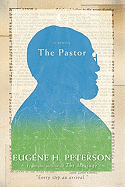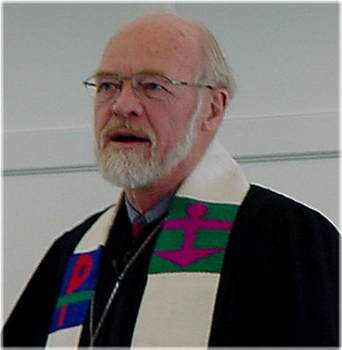Eugene Peterson (b.1932) is the author of the best-selling The Message, which is his translation of the Bible into contemporary American language. He is an ordained Presbyterian (PCUSA) pastor who served as the founding pastor of Christ Our King Presbyterian Church in Bel Air, Maryland for twenty-nine years before retiring in 1991. Peterson has since assumed the title of Pastor Emeritus in that congregation. Following his retirement from parish ministry, he spent a year at Pittsburgh Theological Seminary then several years as Professor of Spiritual Theology at Regent College in Vancouver, BC. He retired from academia in 2006. Peterson is the author of over thirty books. His most recent books are The Pastor: A Memoir (2011), Practice Resurrection: A Conversation on Growing Up in Christ (2010), and Tell It Slant: A Conversation on the Language of Jesus in His Stories and Prayers (2008).
Book Basics
The Pastor: A Memoir tells the story of Peterson’s “formation as a pastor and how the vocation of pastor formed” him (p.2). Written for those in a culture that typically patterns pastoral ministry on unhealthy contemporary assumptions of what the church should be , it provides a healthy model for restoring the richer understanding found in two millennia of church history. This book of stories is intensely personal, uniquely pastoral, strikingly humble and should be considered a must read for those in ministry as well as those who want to enlarge their understanding of what ordained ministry is.
 Peterson’s path to pastoral ministry was haphazard. Raised in a Pentecostal home, he knew the Bible well thanks largely to his mother who took him along on her outings to preach to all male gatherings of lumberjacks and miners, which stopped abruptly when his sister was born and never returned after his mother was told that this kind of activity was beyond the role afforded to women. Later in his childhood, he recalls the many hours he spent working in his father’s butcher shop as his “introduction to the world of congregation” (p.39). A failed engagement and a last minute decision not to follow his plan to teach in Nigeria left him concerned he would wind up unemployed upon his graduation from college. With the mentality that being a pastor was the sort of work one did when nothing else was available he contacted his denomination and was given the opportunity to become a church planter. When a day of door knocking in the proposed town was unfruitful he decided to attend seminary with aspirations of becoming a professor. His seminary studies required field work, which took him into multiple Presbyterian churches over a three year period At the end of that time his ordination officially completed his journey from Pentecostal to Presbyterian.
Peterson’s path to pastoral ministry was haphazard. Raised in a Pentecostal home, he knew the Bible well thanks largely to his mother who took him along on her outings to preach to all male gatherings of lumberjacks and miners, which stopped abruptly when his sister was born and never returned after his mother was told that this kind of activity was beyond the role afforded to women. Later in his childhood, he recalls the many hours he spent working in his father’s butcher shop as his “introduction to the world of congregation” (p.39). A failed engagement and a last minute decision not to follow his plan to teach in Nigeria left him concerned he would wind up unemployed upon his graduation from college. With the mentality that being a pastor was the sort of work one did when nothing else was available he contacted his denomination and was given the opportunity to become a church planter. When a day of door knocking in the proposed town was unfruitful he decided to attend seminary with aspirations of becoming a professor. His seminary studies required field work, which took him into multiple Presbyterian churches over a three year period At the end of that time his ordination officially completed his journey from Pentecostal to Presbyterian.
The remaining pages tell the more widely known parts of his formation, but with many previously unpublished details. In the early years of ministry he moved from a passion for serving as professor to a recognition of his calling to pastoral ministry in a parish setting. Peterson then learned to deepen that identity as he moved from a competitive to a contemplative pastor, later from a pastor to a pastor-writer, and after retiring from parish ministry to the expanded role of pastor-writer-translator-professor.
So What?
Pastoral ministry has undergone radical changes over the last century. Congregational expectations often pressure pastors into fashioning pastoral identity into their image. The significant membership declines in the mainline Protestant denominations have created an environment in which everyone, from those in the pews to denominational leaders, recognize that radical change is needed. Perhaps one of the changes is a new understanding of just what ordained ministry is.
- Within your local congregation do many people expect the clergy to provide religious goods and services while enlarging the congregation’s membership and growing its campus?
- Do pastoral positions within your congregation come with lengthy job descriptions and detailed performance review criteria that base success largely on measures that mirror success in the arena of business?
- What do you understand the role of pastor to be? What sources have contributed to your view? Apart from reading Peterson’s book, how might you expand your perspective?
Eugene Peterson. The Pastor: A Memoir. HarperOne, 2011. ISBN: 9780061988202.
